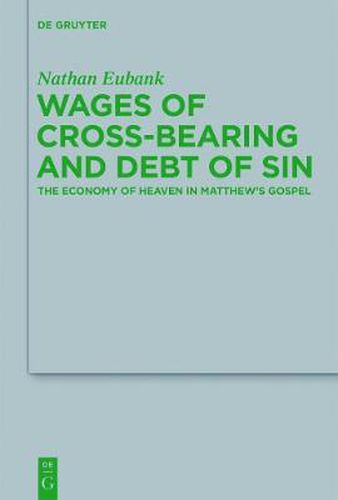Readings Newsletter
Become a Readings Member to make your shopping experience even easier.
Sign in or sign up for free!
You’re not far away from qualifying for FREE standard shipping within Australia
You’ve qualified for FREE standard shipping within Australia
The cart is loading…






In comparison to Mark and Luke, the First Gospel contains a striking preponderance of economic language in passages dealing with sin, righteousness, and divine recompense. For instance, sin is described as a debt, and righteous deeds are said to earn wages with God or treasure in heaven. This study analyzes Matthew’s economic language against the backdrop of other early Jewish and Christian literature and examines its import for the narrative as a whole. Careful attention to this neglected aspect of Matthew’s theology demonstrates that some of the Gospel’s central claims about atonement, Jesus’ death and resurrection, and divine recompense emerge from this conceptual matrix. By tracing the narrative development of the economic motif, the author explains how Jesus saves his people from their sins and comes to be enthroned as Son of Man, sheds new light on numerous exegetical puzzles, and clarifies the relationship of ethical rigorism and divine generosity.
$9.00 standard shipping within Australia
FREE standard shipping within Australia for orders over $100.00
Express & International shipping calculated at checkout
In comparison to Mark and Luke, the First Gospel contains a striking preponderance of economic language in passages dealing with sin, righteousness, and divine recompense. For instance, sin is described as a debt, and righteous deeds are said to earn wages with God or treasure in heaven. This study analyzes Matthew’s economic language against the backdrop of other early Jewish and Christian literature and examines its import for the narrative as a whole. Careful attention to this neglected aspect of Matthew’s theology demonstrates that some of the Gospel’s central claims about atonement, Jesus’ death and resurrection, and divine recompense emerge from this conceptual matrix. By tracing the narrative development of the economic motif, the author explains how Jesus saves his people from their sins and comes to be enthroned as Son of Man, sheds new light on numerous exegetical puzzles, and clarifies the relationship of ethical rigorism and divine generosity.